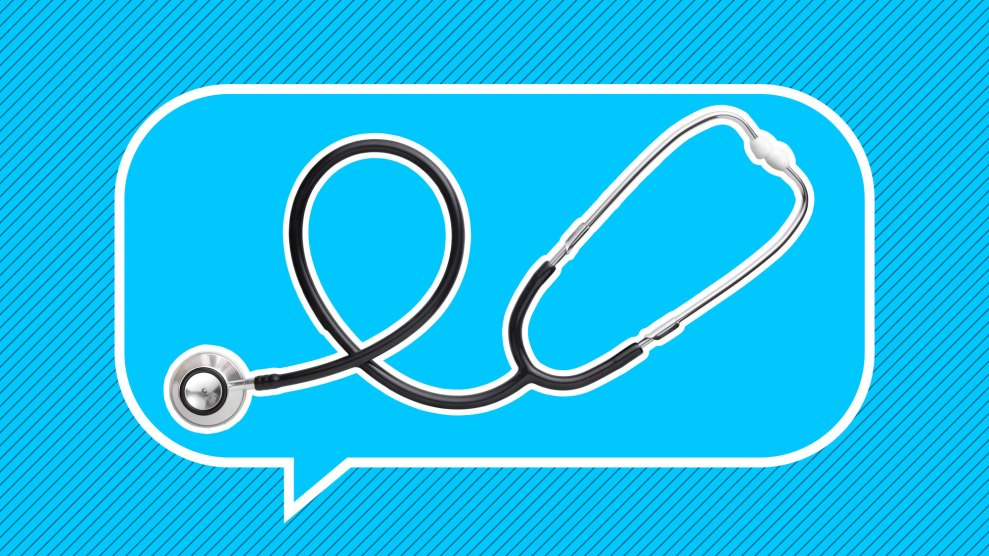
Mother Jones illustration
The Trump administration announced last week that it would allow states to impose work or other “community engagement” requirements for Medicaid beneficiaries—a first in the program’s history.
Though the administration says the policy will not apply to Medicaid beneficiaries who are pregnant, disabled, elderly, or deemed “medically frail,” millions of adults could now face work requirements—and potentially risk losing their insurance. A report from the Kaiser Family Foundation estimates there are nearly 25 million adults on Medicaid, 60 percent of whom are already working. But as my colleague Noah Lanard explains, many Medicaid beneficiaries who don’t work face obstacles entering the workforce.
More than a third of those 25 million Americans say they are ill or disabled, and 30 percent say they’re taking care of “home or family.” Two-thirds of Medicaid recipients in Michigan who are “out of work” say they have a chronic illness.
Under the new policy, states must first apply and receive a waiver from the Centers for Medicare and Medicaid Services. Kentucky received an approval last Friday, and nine other states—Arizona, Arkansas, Indiana, Kansas, Maine, New Hampshire, North Carolina, Utah, and Wisconsin—have applications pending. And more could apply.
Mother Jones wants to hear from you about this issue. Are you at risk of losing coverage because your state has applied for Medicaid work requirements? How would these changes affect you?
Your message has been sent
We may share your response with our newsroom and publish a selection of stories which could include your name, age, and location. Your email address will not be published and by providing it, you agree to let us contact you regarding your response. We respect your privacy and will not use your email address for any other purpose.
Image credit: Sezeryadigar/Getty Images


















